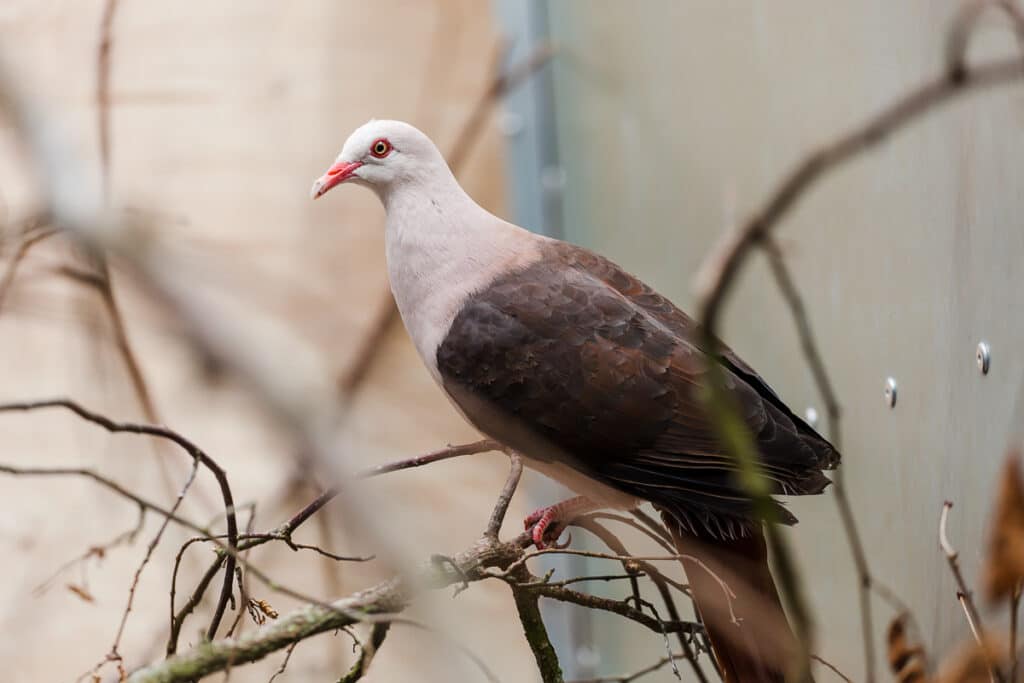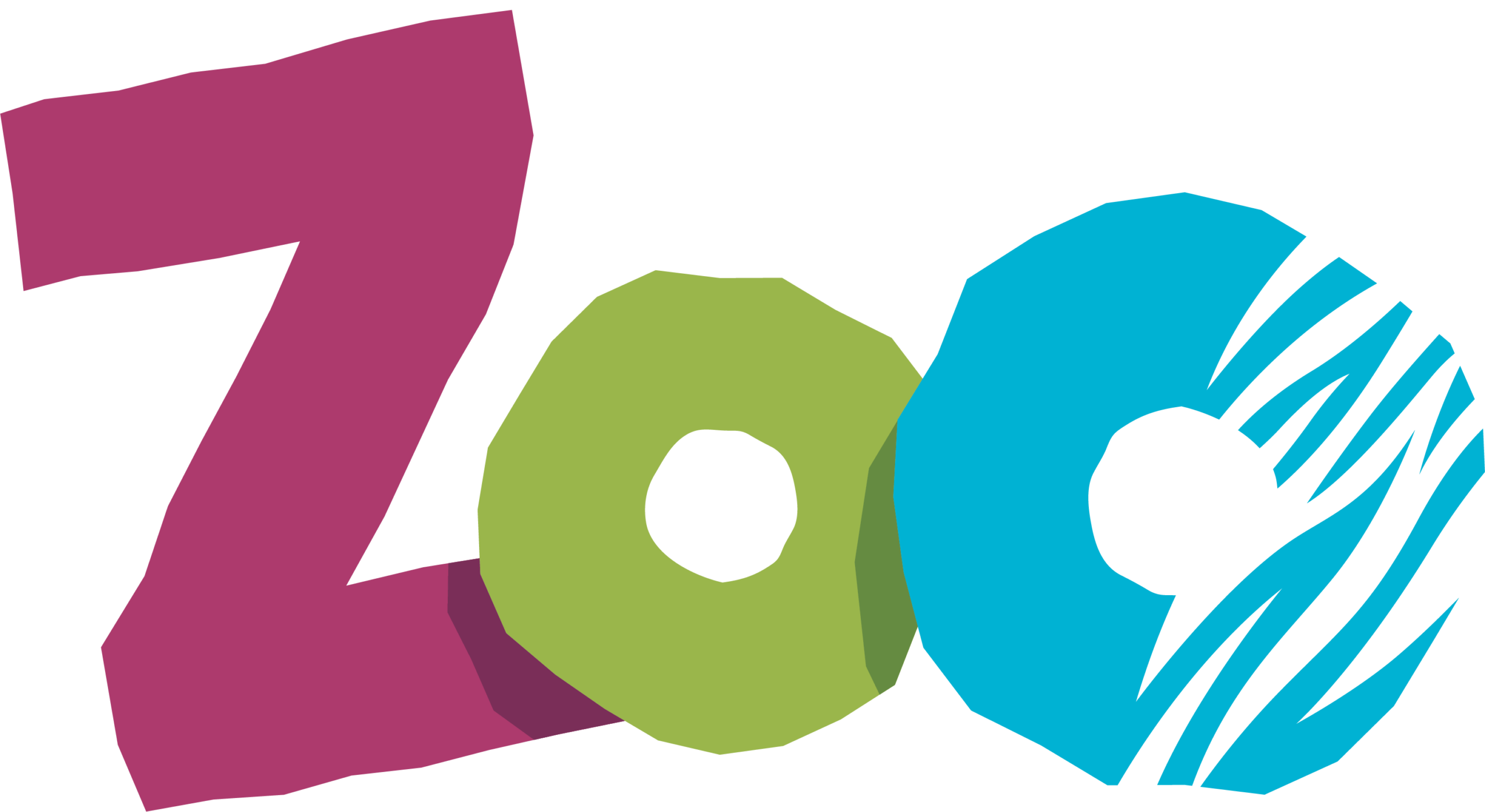
We have three pink pigeons in our Forest Aviary area of the zoo. We have successfully hand-reared a chick in 2025 using pioneering techniques developed by our expert bird keeper Tom Tooley.
Once down to just nine individuals in the wild, the pink pigeon is now a shining symbol of conservation success with an estimated 400 individuals in the wild. Without past conservation action, pink pigeons would almost certainly be extinct today.
This rare pigeon lives in evergreen and coastal forests and is only found today on the island of Mauritius.
Pink pigeons are herbivorous, eating buds, flowers, leaves, shoots, fruits and seeds.
Interesting facts!
- The voice of the pink pigeon consists of a flight call that sounds like “hoo hoo”.
- A male and a female will generally mate for life. The female usually lays two white eggs and incubation duration is two weeks.
- They are only found on the Island of Mauritius
- Housing pink pigeons drove pioneering techniques to be developed by our expert bird keeper Tom Tooley, who has worked at Paignton Zoo for more than 27 years. Since 2014, Tom has been sharing his innovative hand-rearing techniques with Mauritian conservationists, dramatically improving survival rates for this endangered species.
- His pioneering method ditches traditional crop tubing in favour of a gentler approach using a specially sized catheter attached to a syringe that’s placed on the baby bird’s tongue. This allows the chicks to feed naturally without the stress that can harm delicate squabs.
Conservation
Despite appearances, only 2% of Mauritian forest remains, with the lush green landscape seen by tourists being made up of introduced trees and plantations. Habitat loss and introduced predators were the main reasons for the pink pigeons’ decline.
Since 2014, Wild Planet Trust bird specialists have been working in Mauritius to share their knowledge and experience with their field based colleagues, to improve the wild numbers of the pink pigeon. The pink pigeons at the zoo are also part of the EAZA ex-situ breeding programme (EEP) for the species.

